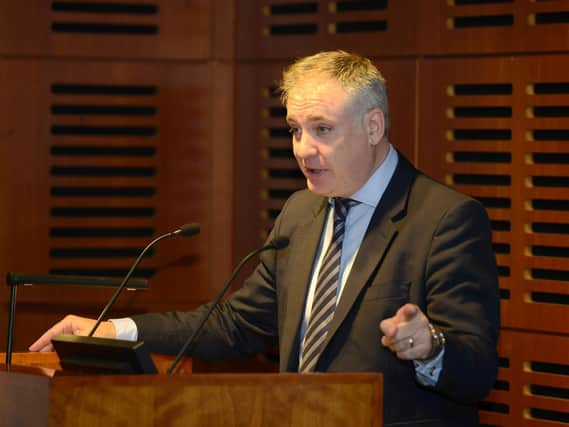University Mental Health Day helps show how attitudes in Scotland have changed – Richard Lochhead


I read a heart-warming story recently, involving a sensitive issue which for too many years was quite simply a conversation stopper in Scottish society, especially among young people.
It appeared on Heriot-Watt University’s news site and told how after a traumatic event in her life, a Northern Irish student and netball player had been left with serious anxiety and depression. She very openly described how she coped and what help she received.
Advertisement
Hide AdAdvertisement
Hide AdHer words were powerful: “To realise someone cared about me when I was at my lowest point, made the world of difference. I loved going to [netball] practice, and put all the energy I had into it – I have to say that sport saved me.”
The most important point here is she was simply willing to talk about it publicly, including revealing her name.
A quarter of a century ago when I graduated from Stirling University, cases such as hers were simply not discussed, as was indeed any admission of having ‘counselling’.
Today however – as the UK marks ‘University Mental Health Day’ – I am delighted to say, it’s a very different situation.
From Lews Castle College UHI in the Western Isles to the University of Edinburgh and around the country, campus approaches are being transformed so mental health initiatives increasingly become firmly embedded within student services, to ensure all colleges and universities prioritise that anyone struggling with mental health issues can find and access exactly the help they need and that these issues are openly discussed.
At Lews Castle College in Stornoway, for instance, I hear they are launching a photo competition coinciding with University Mental Health Day, to encourage students to explore how natural environments can help to improve moods if they are down.
Over the past year, the College has also been encouraging its students to write encouraging messages on a ‘positivity tree’, and have held events including one where engineering students created ‘fidget spinners’ with suggestions on how to talk others about troubling issues.
Working together
City of Glasgow College, Scotland’s largest, hosted its inaugural Mental Health Conference in November, highlighting the commitment Scotland’s colleges are also giving to working collaboratively to support student mental health and wellbeing.
Advertisement
Hide AdAdvertisement
Hide AdAt the University of Edinburgh, mental health initiatives go beyond student services into the key areas of community, support, living and learning. The University has taken this forward in collaboration with students, academics and professional support staff, and this collaborative approach is to be highly commended.
The NUS Scotland’s ‘Think Positive’ student mental health campaign – to which the Scottish Government is fully committed – paints a similarly supportive picture.
Part of this, involves colleges and universities, creating their own Student Mental Health Agreements – plans tailored to individual institutions, setting out everything they are doing to improve student mental health, taking into account, for instance, the diversity of student needs.
NUS Scotland says during last academic year, significant numbers of students were positively impacted by their institution taking part in Think Positive.
The ‘Positive’ campaign team will host its first Scotland-specific student mental health conference in May, for which I am told there are already 40 submissions received, from across the UK, to deliver sessions across a range of issues relating to student mental health.
Helping students achieve their potential
One of the most concrete actions the Government now has firmly in motion are plans to provide more than 80 additional counsellors in further and higher education over the next four years.
The Scottish Funding Council (SFC) announced an allocation to institutions of £3.645 million for the 2019-20 academic year, and it is great to see that recruitment of additional counsellors is already under way, in this the first year of delivering on this commitment to the sector.
The work is being driven forward by the Student Mental Health and Well Being Working Group whose membership includes all the key stakeholders. Again, proactive collaboration like this is essential to support students to achieve their full potential.
Advertisement
Hide AdAdvertisement
Hide AdMy message this day is clear. We will continue to work closely at every opportunity – with sector and student representatives and the SFC – so that our campuses can be transformative places where students not only achieve academically, but where their wellbeing is supported and nurtured.
Richard Lochhead is Scotland’s Minister for Further Education, Higher Education and Science
